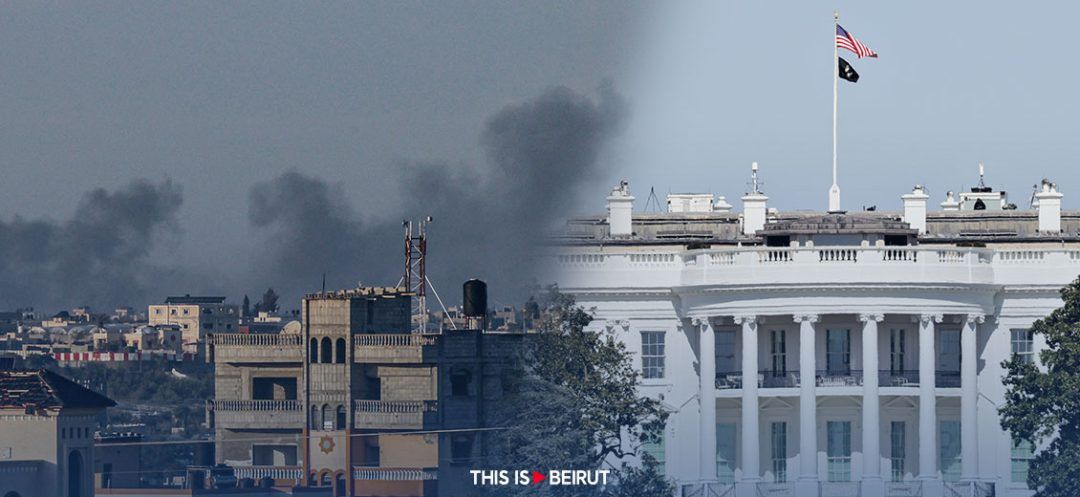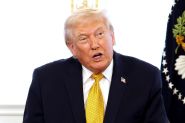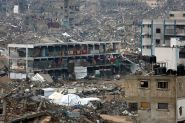- Home
- Middle East
- Washington Seeking Ceasefire in Gaza Ahead of Ramadan

According to informed Arab circles, significant endeavors are underway to achieve a ceasefire in Gaza prior to the beginning of the Muslim fasting month of Ramadan around March 11.
Efforts are underway despite Israeli Prime Minister Benjamin Netanyahu’s unwavering determination to pursue the war until all its goals are fulfilled, and despite his insistence that any agreement with the Palestinians must stem from direct negotiations between the two parties without preconditions.
Low-profile meetings among American, Saudi, Egyptian, Qatari, Palestinian and Israeli officials are taking place in Riyadh, Cairo and Doha, aiming to overcome obstacles hindering a ceasefire agreement. The goal is to streamline initiatives and worksheets into a unified plan geared towards achieving a ceasefire and kickstarting discussions for a settlement based on a two-state solution.
The military escalation conducted by Iran's proxies in Gaza, southern Lebanon, the Red Sea, Iraq and Syria is aimed at strengthening Iran's negotiating leverage for further gains.
According to sources returning from Washington, the Biden administration is accelerating efforts to secure a ceasefire agreement before Ramadan, to lay the groundwork for a political settlement. However, the information brought back was contradictory: some are suggesting the potential for an American-Iranian agreement, while others assert that no such agreement exists due to Iran's failure to meet Washington's conditions. That is why Tehran has resorted to escalation through its proxies in operations that remain carefully controlled to stay below the threshold of “no” to war.
Furthermore, Washington is resolutely pursuing comprehensive peace in the region. For this purpose, it aims to neutralize all non-state actors and instances of extremism. There is a growing convergence of American and Arab Gulf interests in establishing a policy framework to counter extremism, as international and regional orientation is unequivocally set on achieving comprehensive peace, resolving conflicts and implementing normalization to restore security and stability in the region.
Normalization will not occur until after the announcement of a two-state solution and the convening of an international peace conference for the Middle East, Saudi Foreign Minister Faisal bin Farhan declared loud and clear at the Munich Security Conference. “Normalization with Israel depends on the Arab Peace Initiative.” He stressed the “essential need to secure a viable path to the two-state solution,” noting that growing international consensus has brought us closer to a solution.
Visitors to Washington are unveiling preparations for the peace project involving the US, European countries and Arab states.
Where Does Lebanon Stand?
According to these sources, Lebanon is a priority on the agenda of Security Council members, particularly the five permanent ones (China, the US, France, the UK and the Russian Federation). However, it is important to correct any misconceptions: interest in Lebanon extends beyond containing Hezbollah to ensuring the security of northern Israel and stability in the South.
While this represents only a portion of American interest, true interest extends beyond, and for more than one reason. Lebanon presents a contrasting image to extremism to the world, as it embodies moderation, exemplifies Christian-Muslim coexistence and serves as a hub for intercultural and inter-religious dialogue. Additionally, Lebanon has the potential to contribute to peace through hosting the international peacekeeping force in the southern region (UNIFIL), which is the largest in the world.
The dispute with Israel is a border dispute, and a potential resolution is within reach if Lebanon formulates a policy free from Iranian dominance. Furthermore, Lebanon exemplifies coexistence among its people—it prompted Saint Pope John Paul II to refer to it as a “message” to the world.
Visitors to Washington have underlined US support for Lebanon in order to reinforce its cultural presence and preserve its unique model showcased to the world. This support involves reinforcing civil society sectors to ensure Lebanon's minimum resilience and maintain assistance for the Lebanese army (LAF), which would include additional funding to recruit and equip 5,000 new personnel.
The US support would be coupled with bolstering UNIFIL and developing a plan of action to implement Resolutions 1701 and 2651, as well as the resumption of the tripartite meetings in Naqoura.
The US also emphasized the need to elect a president based on the Quintet’s specifications (France, US, Saudi Arabia, Qatar and Egypt) and the importance of forming a government and initiating the implementation of reforms. Therefore, the Quintet will assume its role in accomplishing the mission concurrently with the ceasefire in Gaza and the South.
According to informed sources, the Quintet will hold meetings in Riyadh to develop a roadmap, starting with electing a president, forming a full-fledged government and, eventually, ending the Lebanese-Israeli border dispute. They also disclose that “the role of US envoy Amos Hochstein in Lebanon will be under the Quintet's auspices, as part of its mission.”
US interest in Lebanon is aimed at “regularizing political life through the election of a president, the activation of institutions and the implementation of the Taif Agreement, by ensuring the inclusive participation of all components in governance and decision-making."
The sources also highlight a US-Israeli dispute regarding how to end “Iranian hegemony” in the region, after it has been confirmed to the international community that this domination is the root cause of destabilization.
Iran is seeking to expand its influence and presence in the Middle East, a matter that prompted Washington to change its strategy in the region and call on Iran to refrain from interfering in other countries’ affairs and cease the operations of its military proxies.
Read more


Comments